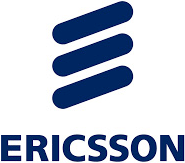Synergistic Research
The situation: Your CEO has identified the need to gather information from multiple stakeholders while recognizing that your organization does not have the capability in-house to conduct such survey research. Thousands of survey research firms exist to help you with this.
How do you ensure a fit between your organization and a survey research firm?
First, identify the purpose behind gathering the desired information. What do you want to know as a result of conducting the surveys? And, how do you plan to use the information? What are your goals? Do you want to focus on employees or customers? Do you want to gather information on guest services, employee and/or customer satisfaction, attitudes, or opinions? Or, do you want to concentrate on engagement, the level of commitment to the organization?
Next, focus the project. A normal tendency is to want to gather a little information on everything, including satisfaction, opinions, engagement, and attitudes; however, this results in small amounts of information about many areas without enough data in any one area to provide meaningful feedback. Will your data gathering require one survey or several? Will one survey research firm accommodate your needs or must you work with several firms to achieve the desired outcome?
What capabilities exist? What capabilities are needed to accomplish your goals?
In evaluating potential survey research firms, recognize that some companies are management consulting firms first and survey research firms second. Some survey research firms offer limited services, while other firms offer full survey research services.
Unless you need management consulting services, identify a full-service survey research firm with a high volume of business in direct client service instead of business to other survey companies or advertising agencies. Full service firms offer services related to study design, questionnaire design and development, data collection (e.g., online, telephone, mail), data cleaning, statistical consulting, data analysis, comprehensive reporting, and action planning.
Some firms will review and edit questionnaire items you have used in the past in addition to writing custom questionnaire items. Some firms will have large databases of standardized questions. Most firms will offer training to select stakeholders on how to interpret key survey results; this helps internalize survey results and apply survey outcomes to day to day operations across the organization.
While some firms specialize in only one area, others offer an array of survey services. Selecting a firm that provides an array of services leaves the door open for future collaborations.
Look for a firm that uses multiple methods to assess and gather information in multiple areas, including employee satisfaction, engagement, customer satisfaction, guest services, political research, market research, hospital surveys, gaming and hospitality surveys. If you decide to gather information about employee engagement as well as customer and employee satisfaction, one firm could report, correlate, regress, and analyze results across multiple studies. This provides great depth in each survey, insightful recommendations, and breadth in future planning.
What is the process?
Find out how the firm approaches the project. What types of analytics and planning tools are used to assess organizational effectiveness? Does the firm have in-house teams of Ph.D. survey researchers and statisticians or do they subcontract the work? Consistency of information and process among in-house staff is important. Ask, too, whether the firm benchmarks against standard measures or only against measures within the organization. Use of a single firm often provides the most credible, valid, and reliable data measures across studies.
Look for a firm that understands and expresses the importance of standards of ethical practice. You must be assured that your survey research is conducted with honesty, confidentiality, and integrity.
Consider the advantages of retaining one survey research firm to meet your survey needs as opposed to several:
- lower costs;
- a single consistent project manager across multiple research studies;
- consistent team members (Ph.D’s, staticians, designers, telephone interviewers);
- consistent descriptive and inferential statistics across all studies;
- Benchmarking and standards of measure will be more valid and reliable by working with one survey research firm;
- no need to train the organization to understand multiple different report formats;
- faster deployment of studies;
- faster results;
- faster improvements to business operations with consistent action planning.
You may have no plans now to conduct another survey, but that may change in the near future. Position yourself now to work with a firm that can get to know your organization, become familiar with stakeholders, and the way in which business is done. When conducting future surveys, the firm does not have to relearn the process.
The advantages of using one survey research firm to conduct multiple studies across your organization easily outweigh the disadvantages.
If you would like to learn more about how Synergistic Research can reduce costs and leverage survey research results across your organization, contact NBRI now at 800-756-6168.
Terrie Nolinske, Ph.D.
Research Associate
National Business Research Institute




























 By submitting this form you agree to our
By submitting this form you agree to our